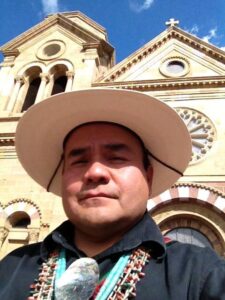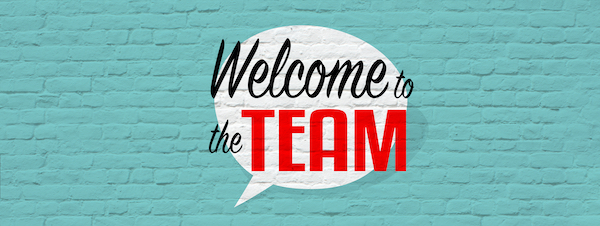 Yá’atééh! Guwatzi hauba! Greetings to all in my Navajo and Laguna Pueblo languages. My name is Christopher J. Paisano but I go by Chris or CJP. My pronouns are he, him or bíí (in Navajo). I am pleased to begin working with so many talented, passionate, and caring individuals here at NMAC as the new Indian Country Coordinator to help build ESCALATE with Native American and Alaskan Native partners for Indian Country.
Yá’atééh! Guwatzi hauba! Greetings to all in my Navajo and Laguna Pueblo languages. My name is Christopher J. Paisano but I go by Chris or CJP. My pronouns are he, him or bíí (in Navajo). I am pleased to begin working with so many talented, passionate, and caring individuals here at NMAC as the new Indian Country Coordinator to help build ESCALATE with Native American and Alaskan Native partners for Indian Country.
I come from Fort Defiance, Arizona on the Navajo Nation and from Oakland, California where I was born, with relatives from Laguna Pueblo in New Mexico.
Joining the NMAC community in such a unpredictable time for our country is challenging. My family recognizes this is a challenging time for all peoples, especially for Black, Indigenous people of color (BIPOC) and gender diverse individuals. Yet, working from home is a blessing in many ways; I get to stay on my Navajo Nation taking care of my dad, dog, and extended family members.
We on the Navajo Nation experience your anxiety, fear, and the commitment to preserving our personal and mental health care during this transitional time from one administration to the Biden/Harris Administration. We all have experienced uncertainty before and I hope this time around, we have better tools, understanding, and compassion to help all of us survive and thrive during this next year. That’s why I am excited to be working for NMAC as part of ending the HIV epidemic goal by 2030.
Introduced disease and viruses are basic biology that affects all human beings despite political or social lines. Tribal nations and Alaskan Natives have always been on the front line to these exposures. While many Native peoples have survived changes, sadly, many have not. Diseases introduced from across the world is more poignant in today’s world of Covid-19. We are so aware and notice the missing when so many lives could have been saved. This lament sounds familiar from the first initial AIDS cases in the 80s during the beginning days of the HIV/AIDS epidemic. We should remember that resilience is our collective strength.
Currently, NMAC and our partners are developing a new HIV stigma reduction curriculum called ESCALATE. I am excited that active participation from all BIPOC and Gender Non-conforming partners includes Native American and Alaskan Natives.
ESCALATE is devised to eliminate stigma against those living with HIV and to create welcoming environments for people living with HIV to continue receiving HIV treatment in their communities. NMAC has identified stigma as the leading cause that keeps many from accessing HIV treatment or from knowing their HIV status. Stigma then is a major barrier that allows HIV acquisition to increase within not only our Native communities, but throughout the world at large. Our collective goal is to use ESCALATE to end the HIV epidemic by 2030.
While NMAC does have existing members from the Native American and Alaskan Native community as partners, we are always searching for other engaging community leaders in Indian Country to help give us feed back on ESCALATE. NMAC will continue to create, revise, and adapt the ESCALATE curriculum and associated trainings to be an effective tool for our Native community members.
NMAC aims to unveil the ESCALATE curriculum at the U.S. Conference on HIV AIDS (USCHA) in Washington, D.C. in 2021. I know with the hard work and collaboration from the Native community, we will have a powerful tool to ending stigma in Indian Country, but tools for our local community leaders to continue using to keep the fight growing so that by 2030, HIV will no longer be the epidemic it is now.
As my K’awaika hanuu (Laguna Pueblo) family says to me and I will share with you, “Hashjimé! Uumé!” Be strong! Or in Navajo: Yéégo! You can do it!
I look forward when we will be able to look around the family table and see all our family, friends, and neighbors represented and celebrating life as we used to do in song, dance, and laughter. I am sure this is true in your family communities, as well.
Ahé’héé! Dawaa’ é! Thank you!
